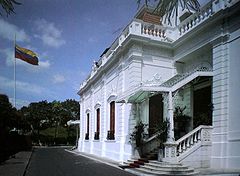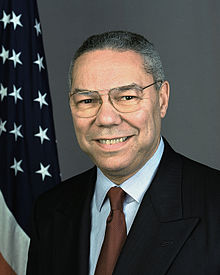The Revolution Will Not Be Televised (film)
The Revolution Will Not Be Televised Spanish La revolucin no ser transmitida , also known as Chvez Inside the Coup, is a 2003 documentary focusing on events in Venezuela leading up to and during the April 2002 coup dtat attempt, which saw President Hugo Chvez removed from office for two days. With particular emphasis on the role played by Venezuelas private media, the film examines several key incidents the protest march and subsequent violence that provided the impetus for Chvezs ousting the oppositions formation of an interim government headed by business leader Pedro Carmona and the Carmona administrations collapse, which paved the way for Chvezs return. The Revolution Will Not Be Televised was directed by Irish filmmakers Kim Bartley and Donnacha Briain. Given direct access to Chvez, the filmmakers intended to make a flyonthewall biography of the president. They spent seven months filming in Venezuela, following Chvez and his staff and interviewing ordinary citizens. As the coup unfolded on 11April, Bartley and Briain filmed on the streets of the capital, Caracas, capturing footage of protesters and the erupting violence. Later, they filmed many of the political upheavals inside Miraflores, the presidential palace.
Throughout much of the twentieth century, Venezuela was beset by political, civil and military unrest. After Juan Vicente Gmezs long reign as president ended in 1935, a series of military rulers followed, concluding with Marcos Prez Jimnezs overthrow by general uprising in 1958. Although the military remained influential, Venezuelas government has since been chosen by civilians through democratic processes. Until 1998, the dominant political parties were Accin Democrtica and COPEI, who shared seven presidencies between them. In 1989, during the second term in office for Accin Democrticas Carlos Andrs Prez, Venezuela was hit by a severe economic crisis. A wave of protests known as the Caracazo engulfed the country and dozens were killed in rioting.Hugo Chvez, then a Lieutenant Colonel in the army, had formed a secret revolutionary group MBR200 in the early 1980s and was planning a rebellious intervention. He later felt the Caracazo was a missed opportunity for his movement. Three years later, Chvez saw another chance in February 1992, he led an unsuccessful military coup dtat and was imprisoned. A second coup attempt, without his involvement, also failed. Chvez enjoyed some popular support for his actions. Released from prison in 1994, he recast his revolutionary group as a legitimate socialist political party, the Fifth Republic Movement. The movement adopted former Venezuelan leader Simn Bolvar as its iconic hero and reference point Bolvar had played a key role in Latin Americas successful struggle for independence from Spain in the 1820s. In the 1998 presidential election, Chvez won 56.2 of the vote, on a promise to end the corruption of several decades and institute a new Bolivarian Revolution that he felt would secure Latin Americas true independence from the outside world. ........
Source: Wikipedia


